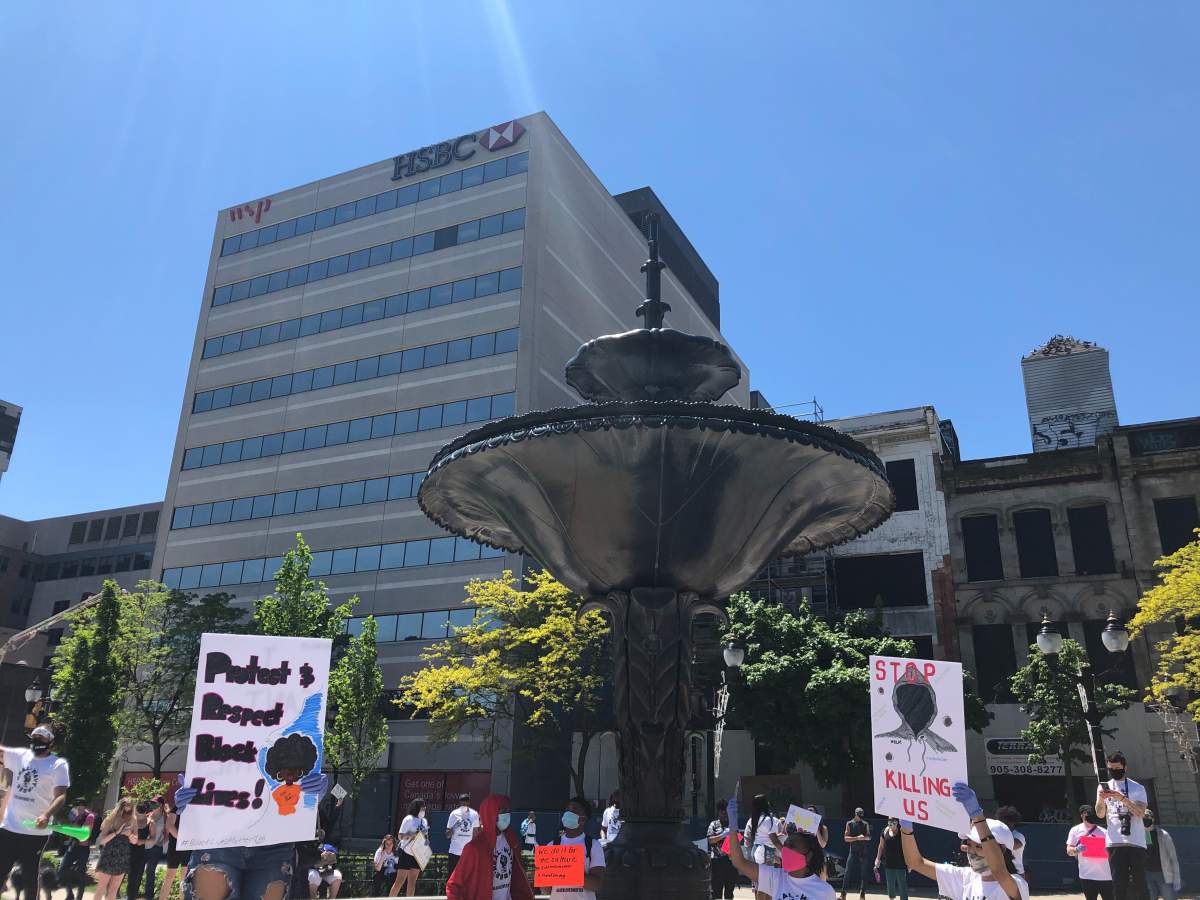Hamilton’s police services board has agreed to look at a potential 20 per cent defunding of local police following protests across Canada and the U.S. by supporters of the Black Lives Matter movement in connection with the death of George Floyd in Minneapolis.

City councillor and police services board member Chad Collins said the move was in response to the city’s inbox being “inundated” by emails from a number of Hamiltonians asking for the redirection of funds to social programs.
“I think this motion will help in responding to the messages that we’ve received as a board and as a council,” said Ward 5 rep Collins who admittedly was less than supportive of the possibility, saying his constituents want “more policing, not less.”
“To me, it means less resources for police, which will ultimately lead to less police officers. And it’s become quite obvious that the defund the police campaign, whether it’s here or elsewhere, is an attempt essentially to neuter the police,” Collins said.
A 20 per cent cut would equate to about a $34 million reduction in the city’s current policing budget of $171 million, according to the board.

Get breaking National news
On June 2, a list of demands was issued by organizers of a series of virtual protests, live-streamed from Toronto’s Black Lives Matter Twitter account, with some filmed from various locations across Hamilton.
Gachi Issa, one of the protest organizers, told Global News that anti-Black racism is pervasive in Hamilton and needs to be addressed by elected officials in the city.
“It not only happens in Canada, but it happens in our city,” said Issa during an interview on Global News Radio 900 CHML’s Bill Kelly Show.
“We should focus on it and we should work toward a more just society for Black and racialized people. And that means defunding the police, that means allocating these resources back into the community.”
Dr. Greg Brown, from the department of sociology and anthropology and legal studies at Carleton University, says the current ideology of defunding is a theory that potential deadly interactions between officers and people can be avoided through preventive investments in communities, mental health services, and social service programs.
“I think it’s sort of coalescing is around a definition of the police maybe eliminating or transferring some of the current work that they do, outside of core law enforcement, responding to citizens in distress, 911 type of calls, and downloading that service onto another,” said Brown.
Hamilton Police Association president Clint Twolan says 89 percent of the city’s police budget goes to staffing costs and that a 20 percent cut in the budget means a significant decrease in staffing.
Twolan says he doesn’t believe that redirecting policing funds will remove police from dealing with confrontation in a given community saying officers are a downstream institution that deals with the social issues that have come as a result of shortcomings of institutions above them.
“Whether it’s health care, whether it’s mental health, whether it’s education or socio-economic issues involving housing and drug addiction, those kinds of things. We are the ones who we are the catch basins, and we deal with those people,” said Twolen.
Mayor Fred Eisenberger concurs with Twolen’s assessment, saying that a lot of the “social ills” in society have ultimately landed on police.
“It’s a very complex issue that has many layers,” said Eisenberger.
“Certainly social services and supports that are out there being delivered by federal and provincial governments have been and continue to be inadequate to serve the very people that are in need those resources and services more than ever.”
— With files from Lisa Polewski
- Tumbler Ridge B.C. mass shooting: What we know about the victims
- There are changes coming to Tim Hortons menus and stores soon
- RCMP respond to reports of guns at schools in several Alberta communities
- ‘We now have to figure out how to live life without her’: Mother of Tumbler Ridge shooting victim speaks








Comments
Want to discuss? Please read our Commenting Policy first.